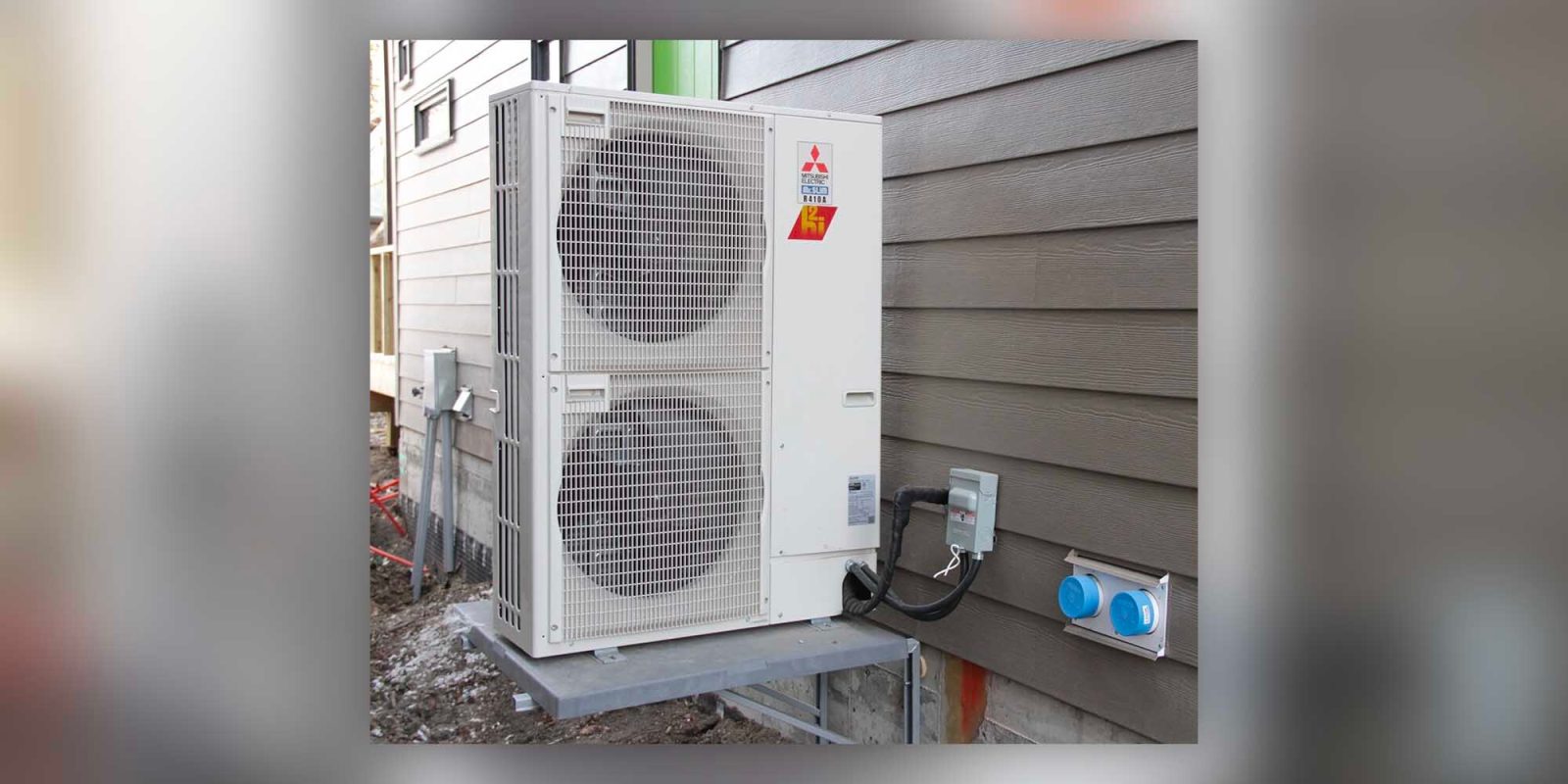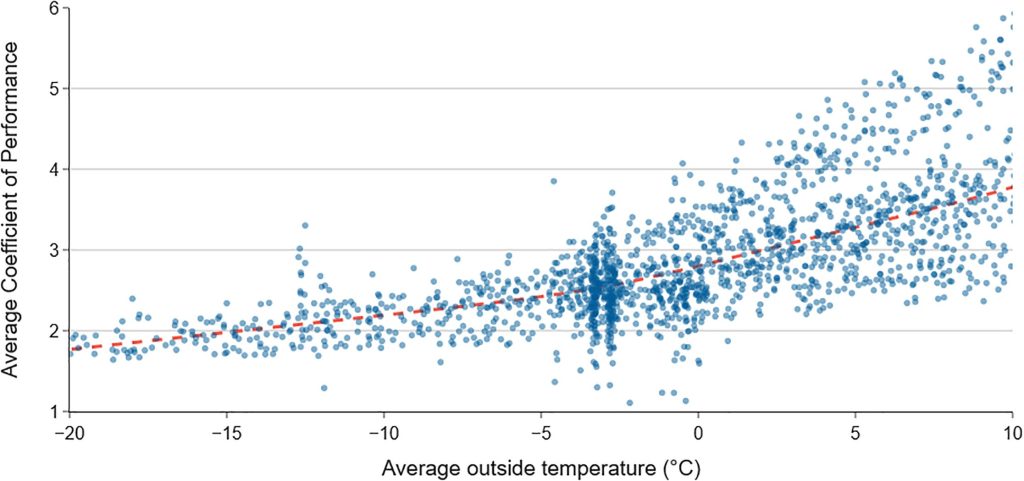
A new Oxford University study found air source heat pumps to be more efficient than oil and gas heating in cold and subzero temperatures.
Heat pumps are a cost-effective, efficient, and low-emissions way to cool and warm households, with global sales increasing 11% in 2022 and US sales outpacing those of gas furnaces for the first time the same year. But misinformation and misunderstandings persist about the ability of air source heat pumps to perform in below-freezing temperatures.
New research from researchers at Oxford University and the Regulatory Assistance Project (RAP) found that not only do heat pumps have superior efficiency compared to oil and gas systems, but they also perform reliably in temperatures well below 0°C (32°F).
Mild cold climate results
The researchers write in the journal Joule about heat pumps’ coefficient of performance (COP), which is the ratio of the useful heat outputted to energy consumed:
Typical COP values for heat pumps lie in the range of 3 to 6, indicating that 3 to 6 units of heat are created from each unit of electricity used. A year-round average COP of 3-4 is common for household applications.
The researchers looked at air-source heat pump performance in mild cold climates in Canada, China, Germany, Switzerland, the US, and the UK. They plotted average COP measurements versus external temperature collected from seven field-testing studies in five countries. A trend line calculated using a locally weighted scatterplot smoothing is shown in the below chart:

They concluded:
When the outside temperature was between 5C and −10C, the mean COP across all systems was 2.74 and the median was 2.62, sufficient to meet heating loads at much higher efficiency than fossil heating and electric resistance heat alternatives.
In climates that stay above -10C (14F), the air source heat pump is more than able to do the job on its own – in a cheaper, much cleaner way than fossil-fuel-powered heating. No oil or gas backup is needed, asserts the scientists.
Extreme cold climate results
The team also tested specially engineered “cold-climate heat pumps” in extreme cold in Minnesota, Alaska, and Finland. They found that those units “can operate with a COP between 1.5 and 2. However, considering the related increase in heating demand and decrease in device efficiency, some form of backup heating may be required.”
The researchers concluded that “backup heating was typically only engaged when the outside temperature dropped past −10C (14F) or lower. Above −10C (14F), heat pumps were able to provide the required heat at relatively high efficiency.”
Electrek’s Take
If you have a gas or oil heating system in your home, it’s worth getting a heat pump. And if you live in a very cold climate, you’ll be able to use your heat pump most of the time and just tap into your old system as backup if extreme cold strikes.
Having a heat pump is going to reduce your heating costs as well as your household’s emissions. And as temperatures continue to rise overall, the heat pump will cool down your home in the warmer months as well.
Read more: This US company’s heat pump works below -22F
If you live in an area that has frequent natural disaster events, and are interested in making your home more resilient to power outages, consider going solar and adding a battery storage system. To make sure you find a trusted, reliable solar installer near you that offers competitive pricing, check out EnergySage, a free service that makes it easy for you to go solar. They have hundreds of pre-vetted solar installers competing for your business, ensuring you get high quality solutions and save 20-30% compared to going it alone. Plus, it’s free to use and you won’t get sales calls until you select an installer and share your phone number with them.
Your personalized solar quotes are easy to compare online and you’ll get access to unbiased Energy Advisers to help you every step of the way. Get started here. –ad*
FTC: We use income earning auto affiliate links. More.












